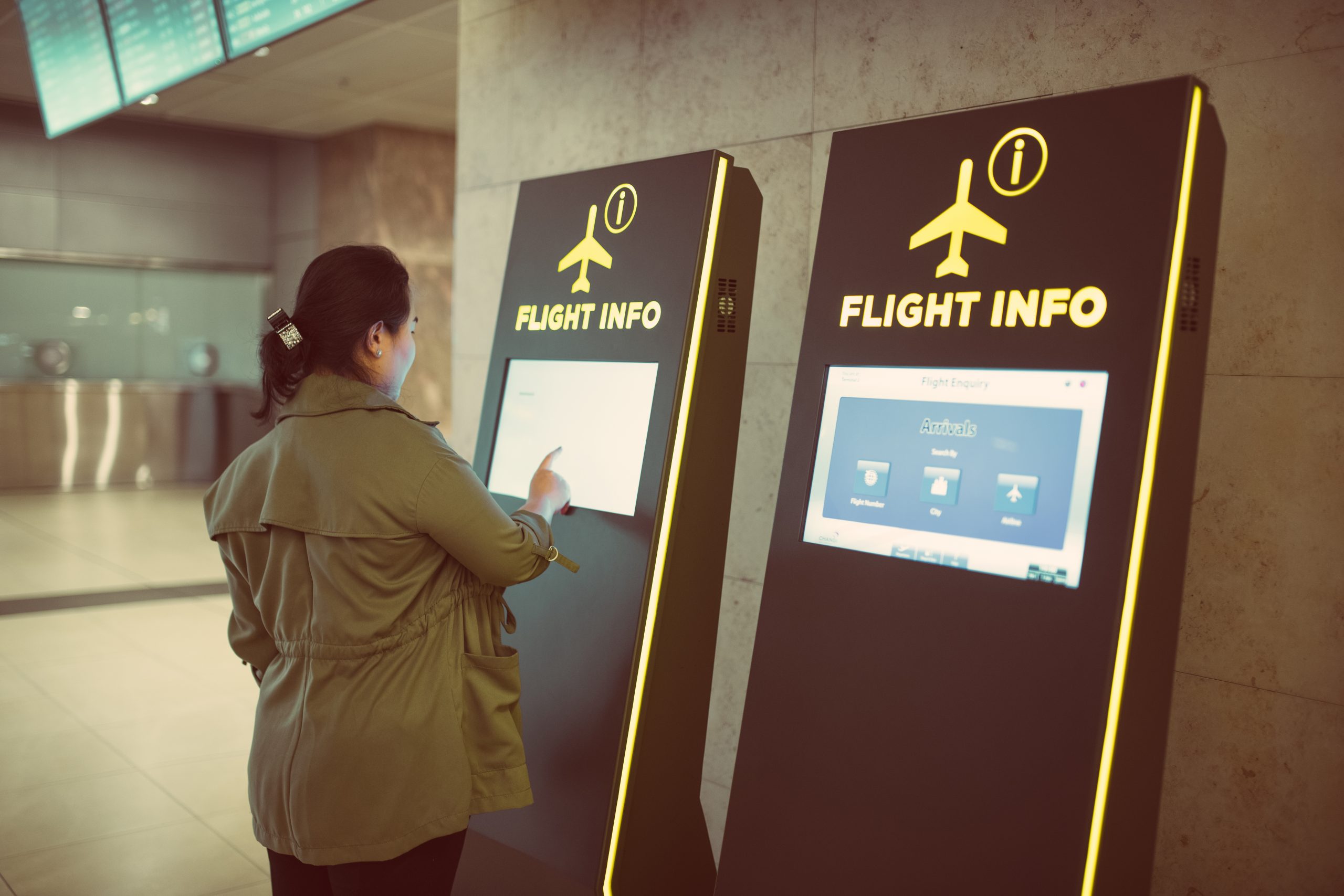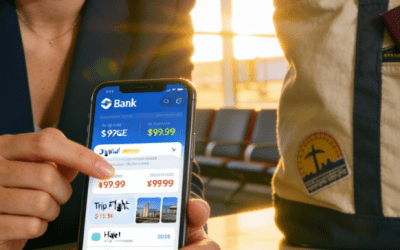Generative AI, a subset of artificial intelligence, is rapidly transforming industries worldwide, and the travel sector is no exception. While AI has been used in travel for years, generative AI is pushing the boundaries, offering unique solutions that are changing the game for travelers and companies alike. From hyper-personalized travel planning to optimizing business operations, generative AI brings new opportunities to create exceptional travel experiences. In this article, we explore the innovative applications of generative AI in the travel industry and the impact these technologies are having on the sector.
Generative AI’s Role in Personalizing Travel Experiences
Personalization is at the core of the modern travel experience. Travelers today seek unique journeys tailored to their individual preferences, and generative AI is making this possible on an entirely new level. By processing vast amounts of data and generating content in real time, AI can offer custom itineraries, realistic virtual tours, and personalized recommendations. This revolution in personalization is helping travelers feel more connected and satisfied with their trips.
Tailored Itineraries and Trip Planning
Generative AI allows for the creation of hyper-personalized trip itineraries, customized to each traveler’s unique preferences. Unlike traditional recommendation systems that rely on historical data, generative AI can simulate conversations, understand traveler preferences, and suggest dynamic itineraries that adapt to changing conditions in real time. For example, if a traveler’s plans change due to weather disruptions or sudden interest in a local event, AI can adjust the schedule instantly.
These AI systems use data from social media, past bookings, and even conversational inputs to learn about a traveler’s interests. This creates a more curated and enjoyable experience, tailored to the unique tastes of each individual. It’s no longer just about recommending a popular tourist spot; it’s about designing a journey that is uniquely yours, from hidden culinary gems to lesser-known cultural experiences.
Creating Hyper-Realistic Virtual Tours
Generative AI is also changing how travelers explore destinations before booking. AI-generated virtual tours offer a high degree of immersion, allowing travelers to experience a location virtually with vivid detail. By leveraging 3D modeling and generative capabilities, AI can create highly realistic representations of places, giving travelers a clear sense of what to expect.
These virtual experiences can go beyond basic visuals to include interactive elements, such as narrated historical contexts or user-controlled navigation. This technology reduces the uncertainty that often comes with traveling to new places, enhancing traveler confidence and satisfaction. It also provides a powerful tool for travel companies to market their destinations in a more engaging way.
Revolutionizing Customer Service in Travel
Generative AI is not just revolutionizing travel planning; it is also transforming how companies interact with customers. Customer service is an essential component of the travel experience, and AI-powered systems are helping travel companies provide a more responsive and personalized service, improving traveler satisfaction and loyalty.
AI-Powered Travel Assistants
Generative AI-driven chatbots and virtual assistants are offering 24/7 customer service that goes far beyond answering basic queries. Travel AI assistants can now handle complex tasks such as rebooking canceled flights, providing instant alternative travel routes, and even making restaurant reservations at the traveler’s destination. They provide a seamless experience by responding to customer inquiries with a human-like understanding of context and nuance
These travel assistants can even go the extra mile by proactively reaching out to travelers. For instance, if an AI system detects a flight delay, it can immediately suggest nearby lounges, book a hotel if necessary, or offer updated information without the traveler needing to ask. This level of responsiveness and proactivity creates a more comfortable and hassle-free travel experience.

Language Translation and Cultural Sensitivity
One significant barrier that travelers face is language. Generative AI is breaking down these barriers with real-time translation services. More than just word-for-word translations, AI is now capable of capturing the cultural nuances of communication, ensuring that messages are conveyed appropriately across different cultures.
Imagine a traveler in Japan trying to ask about local customs or recommendations. Instead of a direct translation, generative AI tailors the language to be culturally sensitive and contextually appropriate. This helps travelers not only communicate more effectively but also understand cultural norms better, leading to richer and more respectful interactions.
Enhancing Marketing and Content Creation for Travel Brands
The way travel brands communicate with potential customers is also changing, thanks to generative AI. AI can produce vast amounts of content in various formats, all while maintaining a personal and engaging tone. This shift is allowing travel companies to keep up with the demand for fresh content while ensuring that each piece is highly relevant to its audience.
Automated Content Creation with a Personal Touch
Content is king in the travel industry, and generative AI is enabling companies to create engaging content at scale without losing the personal touch. AI can write personalized blogs, social media posts, and promotional emails that target specific customer segments based on their preferences and travel behaviors. For example, if a traveler frequently visits beach destinations, AI can generate targeted content promoting seaside resorts, upcoming beach festivals, or exclusive offers.
Generative AI also ensures content remains fresh by incorporating current events, seasonal trends, and location-specific details. This makes marketing campaigns more relevant, dynamic, and effective, ultimately leading to higher engagement rates and conversions.
Visual Content Generation
Visual storytelling is a powerful aspect of travel marketing, and generative AI is elevating this by creating stunning visuals that captivate potential travelers. Using generative models, AI can produce high-quality images, videos, and even virtual experiences that showcase a destination’s best features. Whether it’s reimagining iconic landmarks or simulating future travel experiences, this technology allows brands to engage customers on a whole new level.
Furthermore, AI can create custom visuals that cater to specific demographics or interests, such as adventure seekers or luxury travelers. This personalization in visual content helps create an emotional connection with potential customers, making them more likely to book their next trip.
Generative AI in Travel Logistics and Operations
Operational efficiency is critical in the travel industry, and generative AI is making a significant impact in this area. By optimizing logistics, AI helps travel companies maximize revenue, reduce waste, and improve overall customer satisfaction.
Dynamic Pricing Models
Generative AI is transforming how travel companies implement dynamic pricing, allowing them to adapt to market demand, customer behavior, and external factors in real time. Unlike traditional pricing systems that rely on past data, generative AI can predict future trends and create pricing models accordingly, ensuring that prices are competitive while maximizing revenue.
For example, AI can analyze factors such as upcoming events, weather forecasts, and local demand to determine optimal pricing for hotels or flights. This adaptability ensures that companies remain profitable even during fluctuations in demand, while also providing fair pricing options for travelers.
Optimizing Inventory and Resource Allocation
Generative AI is also being used to optimize inventory and resource allocation for hotels, airlines, and tour operators. By simulating different scenarios, AI can generate insights into how best to allocate resources—such as room availability, staff scheduling, or fleet management. This ensures that operations are efficient, reducing waste and enhancing customer satisfaction.

For instance, a hotel can use AI to predict booking patterns and optimize room assignments, ensuring that guests have the best possible experience while maximizing occupancy rates. Airlines can similarly use AI to manage flight capacities, reducing the chances of overbooking or underutilization.







